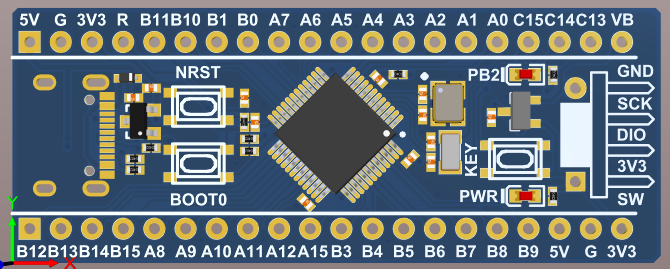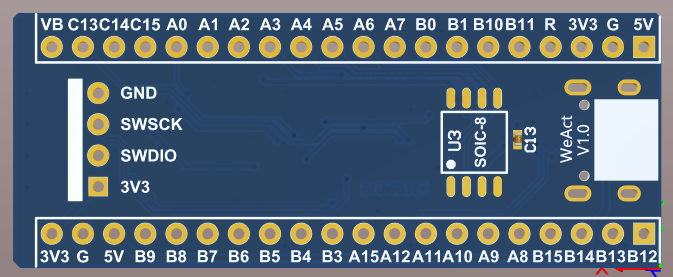stm32h5 seemed to be a fairly new product line too
https://www.st.com/resource/en/datashee ... h503eb.pdf
cortex M33
quite similar to this I'd guess
viewtopic.php?t=2477
it is more like the F4 / G4 series with ART accelerator and all
I've got a H7 board
https://github.com/WeActStudio/WeActStu ... iSTM32H723
H7xx is apparently quite a different thing
https://www.st.com/resource/en/datashee ... h723zg.pdf
Cortex M7 with its own caches lines etc, the clock setup is also quite different from e.g. the F4xx, Cortex M4 series
H7 has system clocks that can literally be 'untangled' from the peripherals clocks
I'd guess the purpose is so that the cpu clocks can be changed on the fly without affecting IO which may require a fixed and/or lower clock speeds.
but that that setup is more 'complicated' vs F4 etc
for Cortex M33 accordingly it has an FPU
but that apparently it is same as F4
https://community.arm.com/support-forum ... -cortex-m4
while the simplified view of the FPU registers is like such
https://developer.arm.com/documentation ... -registers

what is often less mentioned are that the floating point registers are also mapped as vector registors
https://developer.arm.com/documentation/ddi0553/latest/
^ it is 'briefly' covered in chapter B5 of the Arm-v8M manual
those probably account for the Vxxx instructions covered in pm0264-stm32-cortexm33-mcus-programming-manual
3.10 Floating-point instructions
https://www.st.com/resource/en/programm ... ronics.pdf
that probably accounts for the "surprisingly fast" whetstone benchmarks seen in the F4 family
viewtopic.php?t=27
that makes it likely that those 'Mflops' are likely not bluff
viewtopic.php?p=939#p939
those could very well be deemed the 'DSP' instructions
those numbers rival 'old Intel Pentium 4' like 200 MFlops
http://www.roylongbottom.org.uk/whetstone%20results.htm
just that on Intel P4 that is double precision, so that is still a lot of difference
in hardware at least
but the single precision FPU speeds makes it possible to do various DSP tasks in real time that would likely otherwise be not feasible.



